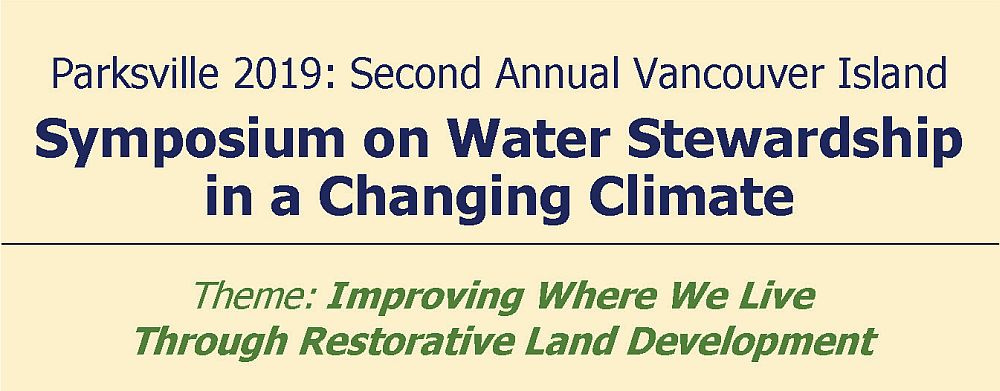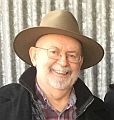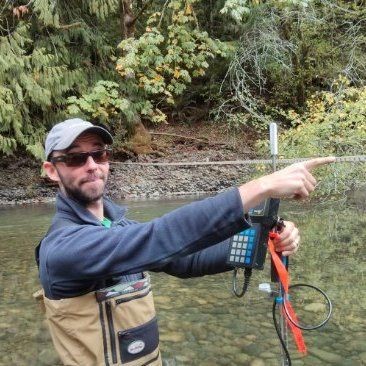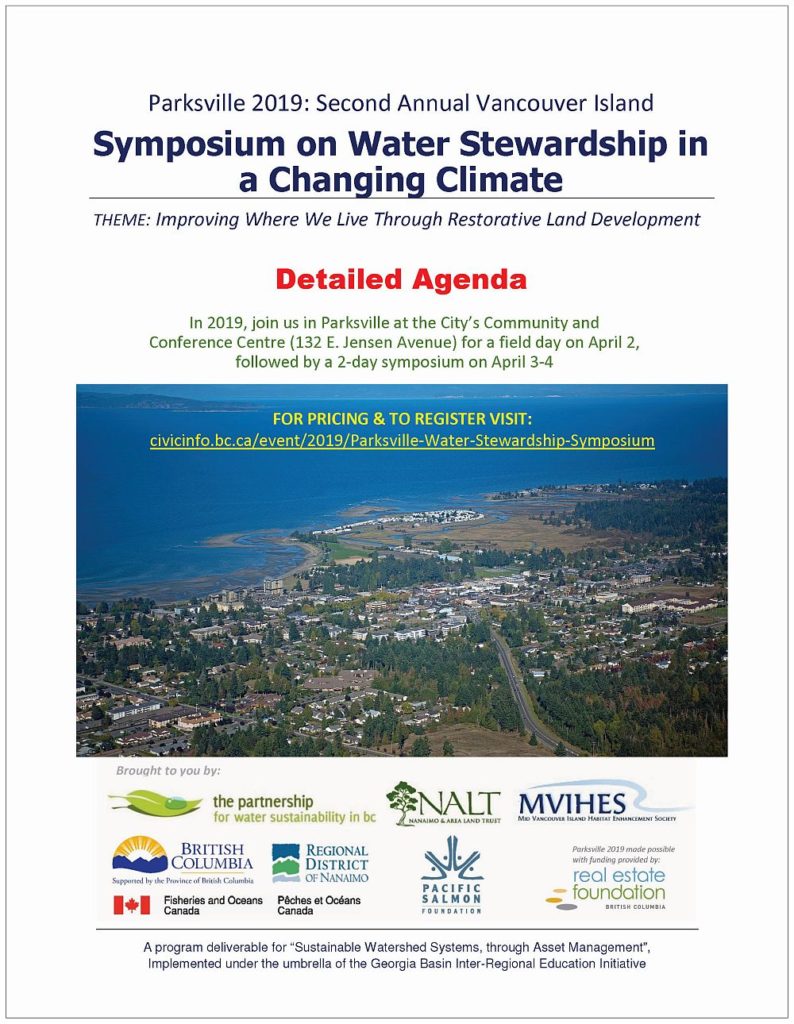MODULE C – DAY ONE – PARKSVILLE 2019 SYMPOSIUM: The context for a mini-workshop within the symposium is “Make Better Decisions: First, Understand How Rain Reaches a Stream”
Note to Reader:
Click on PARKSVILLE SYMPOSIUM AGENDA to download a package that elaborates on the presentation topics in each of the four modules that comprise the program on each symposium day. Parksville 2019 is a call to action. Read together, the set of abstracts create a seamless storyline that is designed to inform delegates so that they will know what to expect on April 3-4 when they convene in Parksville.

MODULE C: Make Better Decisions: First, Understand How Rain Reaches a Stream
In the afternoon, Kim Stephens will set the tone with a bridging presentation titled Hard Work of Hope in a Changing Climate: Will We Adapt? He will be followed by Neil Goeller and Sylvia Barroso of the Ministry of Forests, Lands, Natural Resource Operations and Rural Development. They will tag-team to deliver a “mini-workshop within the symposium”.
 “Prominent scientists say 2018 marks a turning point in human history. We may have crossed an invisible threshold into a new climate regime. It is not the end of the world, just the beginning of another,” states Kim Stephens. “We have the knowledge and tools to restore balance to the water cycle. Can we, will we? Yes, of course we can – but only if civil engineers, urban planners and decision-makers change their mind-sets and grasp the inherent complexity and unpredictability of working with natural systems.”
“Prominent scientists say 2018 marks a turning point in human history. We may have crossed an invisible threshold into a new climate regime. It is not the end of the world, just the beginning of another,” states Kim Stephens. “We have the knowledge and tools to restore balance to the water cycle. Can we, will we? Yes, of course we can – but only if civil engineers, urban planners and decision-makers change their mind-sets and grasp the inherent complexity and unpredictability of working with natural systems.”
To Learn More:
Read “We may have crossed an invisible threshold into a new climate regime.” – Bob Sandford
Closing the Data Gap: Water Stewards, the Key to the Future
 “Understanding the complex interactions of whole-system, water balance processes that lead to water availability in and on the ground, and all the values that depend on it, is critical to effective water resource allocation,” continues Neil Goeller, Regional Hydrologist for the West Coast Region. “The provincial government leads the way with collection, storage and dissemination of surface and groundwater data. A federal agreement provides for large scale data collection on major sources (rivers and lakes). However, there is a gap at the local level.
“Understanding the complex interactions of whole-system, water balance processes that lead to water availability in and on the ground, and all the values that depend on it, is critical to effective water resource allocation,” continues Neil Goeller, Regional Hydrologist for the West Coast Region. “The provincial government leads the way with collection, storage and dissemination of surface and groundwater data. A federal agreement provides for large scale data collection on major sources (rivers and lakes). However, there is a gap at the local level.
“Stewardship groups have local knowledge about local water resources; and are the most invested and most connected to the land base. Participation in streamflow data collection is a way to educate them about creekshed hydrology, in particular correct data collection techniques and their importance for refining the water balance and understanding what the numbers mean.
“This would create understanding that would enhance their effectiveness as champions for reconnecting hydrology and ecology. It would also fill a gap at the creekshed micro-scale where flow data are sparse to non-existent. A provincial government initiative on Vancouver Island is mobilizing stewardship groups and community volunteers to collect such data.”
“By the end of the mini-workshop, our hope is that streamkeepers will understand the value of their contribution in being part of a provincial initiative to fill a data collection gap at the local level,” states Kim Stephens.
To Learn More:
Download PARKSVILLE SYMPOSIUM AGENDA.
To read the consolidated story of all four modules on Day One, click on SUSTAINABLE STREAM RESTORATION: Parksville 2019 Symposium organizing committee releases the Detailed Agenda for Day One (April 3) – “Getting It Right by Applying the Whole-System Approach”


